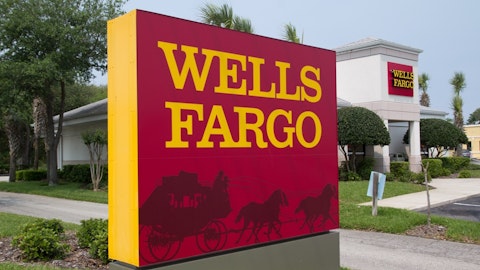Hedge fund closures reached the highest rate in 2015 since the financial crisis, according to fresh statistics. Some hedge fund clients appear to be quite disappointed with the poor results delivered by certain players in the hedge fund industry, while the sustained increase in the number of hedge fund vehicles in recent years has definitely put weight on the quality of hedge funds. A total number of 979 hedge funds closed their doors in 2015, up from 864 registered in 2014. The final quarter of 2015 also witnessed the lowest number of hedge fund openings since 2009, as only 183 funds were brought into being. With bad-performing hedge fund vehicles closing down at a high rate, the performance of the overall hedge fund industry should improve in the upcoming years. Having this in mind, let’s proceed to the discussion of four SEC filings recently submitted by several widely-known hedge funds and investment firms monitored by Insider Monkey.
Through extensive research, we determined that imitating some of the picks of hedge funds and other institutional investors can help generate market-beating returns over the long run. The key is to focus on the small-cap picks of these investors, since they are usually less followed by the broader market and are less price-efficient. Our backtests that covered the period between 1999 and 2012, showed that following the 15 most popular small-caps among hedge funds can help a retail investor beat the market by an average of 95 basis points per month (see more details here).
According to a freshly-amended Schedule 13G, Warren Buffett’s Berkshire Hathaway currently owns 506.31 million shares of Wells Fargo & Co (NYSE:WFC), which account for 10% of the company’s total outstanding stock. This is up from the stake of 479.70 million shares reported by Mr. Buffett’s holding company in its 13F filing for the last quarter of 2015. As Warren Buffett’s stake reached 10%, his holding company may not be able to buy more shares of Wells Fargo without passing a Federal Reserve review. However, the Fed usually allows investors to acquire double-digit stakes in banks as long as those investors are not planning on exerting a controlling influence.
Wells Fargo & Co (NYSE:WFC) is the third-largest bank holding company in the United States in terms of assets, with assets of $1.8 trillion as of the end of 2015. Wells Fargo’s net income for 2015 totaled $22.9 billion (diluted earnings per share were $4.12), down from $23.1 billion ($4.10 diluted EPS) in 2014. The decrease was mainly driven by a $1.0 billion increase in the company’s provision for credit losses and a $937 million increase in non-interest expense, which were partly offset by a $1.8 billion increase in net interest income. The company’s 2015 revenue was $86.1 billion, which increased from $84.3 billion in 2014 and $83.8 billion in 2013. The increase in Wells Fargo’s top-line figure was mainly attributable to an increase in net interest income due to higher income from trading assets, investment securities, and loans. A total of 85 hedge funds from our database were invested in Wells Fargo at the end of December 2015, accumulating almost 12% of the bank’s outstanding common stock. Wells Fargo shares are down 11% in the past 12 months, which might have encouraged Mr. Buffett to boost his firm’s stake in the bank. Ken Fisher’s Fisher Asset Management holds an 18.99 million-share position in Wells Fargo & Co (NYSE:WFC) as of the end of 2015.
Follow Wells Fargo & Company (NYSE:WFC)
Follow Wells Fargo & Company (NYSE:WFC)
Receive real-time insider trading and news alerts
Let’s head to the next pages of this article, where we discuss three separate SEC filings.
As revealed in a Form 4 filing recently submitted with the SEC, Jeffrey Ubben’s ValueAct Capital sold 821,808 shares of Adobe Systems Incorporated (NASDAQ:ADBE) on Thursday and 100,000 shares on Monday at a weighted average price of $92.51 per unit. After the recent sales, the friendly activist hedge fund currently holds a stake of 8.74 million shares in Adobe, which constitute roughly 1.75% of the company’s outstanding common stock. Mr. Ubben’s fund owned 14.01 million shares of Adobe Systems at the end of December 2015, as disclosed in the firm’s 13F filing for the October-to-December period.
Adobe Systems Incorporated (NASDAQ:ADBE) is a diversified software company that provides a wide array of products and services for creating and managing digital content. The main pillar of growth of Adobe’s Digital Media business is its Creative Cloud, a subscription service that enables customers to download and install up-to-date versions of the company’s products such as Adobe Photoshop, Adobe Illustrator, Adobe Premiere Pro, to name just a few. And Mr. Ubben and his team were able to identify the massive growth potential of Adobe’s subscription-based pricing model. The “friendly” activist fund initiated a stake in the highly-diversified software company at the end of 2011. Allegedly, ValueAct Capital was arguing for a subscription-based model soon after initiating the stake, saying that this pricing model would lower entry barriers for new customers, and the company has successfully implemented ValueAct’s suggestions. Adobe Solutions generated total revenue of $4.80 billion during 2015, which increased from $4.15 billion in 2014 and $4.06 billion in 2013. Shares of Adobe are up by 25% over the past year, despite experiencing a major pullback in early 2016. The smart money sentiment towards Adobe increased in the fourth quarter of 2015, with the number of funds (among those we track) invested in the company climbing to 46 from 42 quarter-on-quarter. Stephen Mandel’s Lone Pine Capital trimmed its stake in Adobe Systems Incorporated (NASDAQ:ADBE) by 36% during the December quarter, ending the year with 4.01 million shares.
Follow Adobe Inc. (NASDAQ:ADBE)
Follow Adobe Inc. (NASDAQ:ADBE)
Receive real-time insider trading and news alerts
In a Schedule 13D filing, Paul Singer’s Elliott Management and its affiliates reported combined economic exposure in Qlik Technologies Inc. (NASDAQ:QLIK) of approximately 10.8%. This includes 4.63 million shares of common stock, which represent 5.0% of the company’s outstanding shares, as well as an additional economic exposure of roughly 5.8% in the form of cash settled swaps with respect to 5.42 million shares. This compares with the economic exposure in the software company of approximately 8.88% disclosed in the fund’s initial 13D filing on the company, which was filed with the SEC in early March. This economic exposure involved the same amount of 4.63 million shares of common stock and cash settled swaps with respect to 3.64 million shares.
QlikTechnologies Inc. (NASDAQ:QLIK)’s shares closed sharply higher on Monday, after a Reuters article reported that the business intelligence solutions provider has commenced exploring strategic alternatives, including a potential sale. According to the report, Qlik is working with Morgan Stanley to explore a possible sale. The initial 13D filing submitted by Mr. Singer’s investment firm stipulates that Qlik’s stock is massively undervalued, stating that Qlik Technologies “operates in a highly strategic area of the technology industry with an attractive competitive position and a compelling product set, the value of which is not reflected in the Issuer’s current market value”. Earlier today, analysts at BMO Capital Markets reiterated the ‘Market Perform’ rating on Qlik and raised the price target on the stock to $30 from $26, stating a 35% likelihood that the BI solutions provider will be taken over. According to BMO Capital Markets, Hewlett Packard Enterprise Co (NYSE:HPE), Oracle Corporation (NYSE:ORCL), and International Business Machines Corp. (NYSE:IBM) may be interested in acquiring Qlik Technologies. There were 36 money managers tracked by Insider Monkey with stakes in Qlik on December 31, hoarding up almost 26% of the company’s shares. Ken Griffin’s Citadel Advisors LLC owns 2.12 million shares of Qlik Technologies Inc. (NASDAQ:QLIK) as of the end of the December quarter.
Follow Qlik Technologies Inc (NASDAQ:QLIK)
Follow Qlik Technologies Inc (NASDAQ:QLIK)
Receive real-time insider trading and news alerts
According to a newly-amended 13G filing, Adage Capital Management, founded by Phill Gross and Robert Atchinson, currently owns 3.40 million shares of Vitae Pharmaceuticals Inc. (NASDAQ:VTAE), which make up 12.18% of the company’s total number of outstanding shares. This represents an increase from the 2.15 million-share stake disclosed in the fund’s 13F filing for the October-to-December period. As revealed by several SEC filings, the clinical-stage biotechnology company plans to sell 5.83 million shares of common stock to the public through a secondary offering at a price of $6.00 per share. The company has also granted underwriters a 30-day option to purchase up to 875,000 shares. Vitae Pharmaceuticals Inc. (NASDAQ:VTAE) anticipates to generate gross proceeds of $35 million from the offering (excluding the option to purchase the aforementioned block of shares). The company plans to use up to $13.0 million to advance the clinical development of its RORgt program, which involves the completion of a Phase 2b clinical trial in psoriasis patients for VTP-43742. Up to $6.0 million are anticipated to be used to advance the clinical trial of the company’s LXRβ program, which includes the completion of the ongoing Phase 2a proof-of-concept clinical trial in atopic dermatitis patients for VTP-38543. To be more detailed on what these drug candidates represent, VTP-43742 is a first-in-class oral small molecule being designed for the treatment of psoriasis and other autoimmune disorders. Psoriasis is a skin condition that causes cells to build up on the surface of the skin. Meanwhile, VTP-38543 is a potential first-in-class topical LXRβ selective agonist that is being developed for atopic dermatitis, which is an inflammatory skin disease. A total of 18 funds tracked by Insider Monkey had long positions in the biotechnology company at the end of 2015, accumulating 37% of its outstanding shares. Israel Englander’s Millennium Management reported owning 873,436 shares of Vitae Pharmaceuticals Inc. (NASDAQ:VTAE) in its latest 13F filing.
Follow Vitae Pharmaceuticals Inc (NASDAQ:VTAE)
Follow Vitae Pharmaceuticals Inc (NASDAQ:VTAE)
Receive real-time insider trading and news alerts
Disclosure: None





